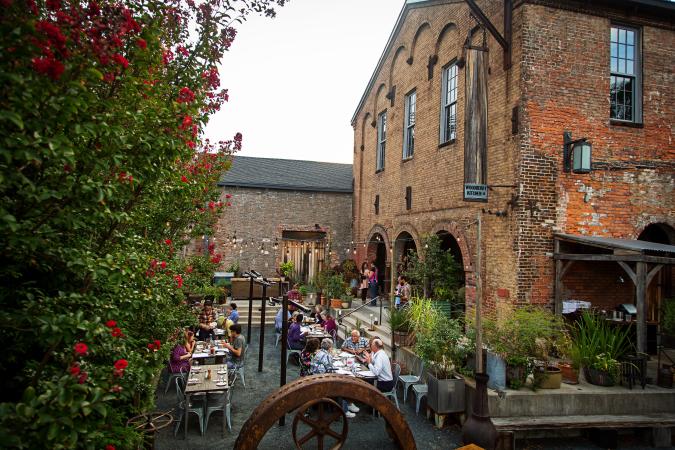This project was successfully funded by a loan from Steward Regenerative Capital.

Woodberry Kitchen is evolving its popular Baltimore restaurant into an event space dedicated to hosting locally-sourced food experiences.
Woodberry Kitchen is a regenerative restaurant and locavore dining experience in Baltimore, Maryland, owned and operated by James Beard Award-winning chef Spike Gjerde. From its beginnings 15 years ago, Woodberry has always been focused on sourcing as much of their ingredients as possible from nearby producers. By buying directly, Woodberry drives over $1M in sales annually for sustainable and regenerative food producers, creating a ripple of local economic impact throughout the region.
Woodberry Kitchen is seeking a loan from Steward for equipment and infrastructure improvements that will allow them to complete renovations on a 120-seat event space (with an intimate 30-seat restaurant). The transition to an event-based model comes as diners are spending more on food-focused events and less on eating out at restaurants. And events can be far more predictable with some events booked out well over a year in advance.
Woodberry Kitchen started with the question, “What is the best way to feed ourselves?”, and has been led by this philosophy since it opened in 2007. Driven by an awareness that commodity agriculture was a major source of pollution in the Chesapeake Bay, Woodberry began working with growers around Baltimore/DC and moving the restaurant in the direction of a locally-driven cuisine. Today, business continues to be rooted in practices that minimize environmental degradation while maximizing returns to farmers and food producers throughout the region. This includes:
Photo Credit: Scott Suchman
Get project announcements, farmer introductions, company updates, and more by subscribing to the Steward newsletter. Join our growing community of people who are making regenerative agriculture the foundation of our future.
Join a growing community of sustainably-minded lenders reaping the rewards from responsible farming